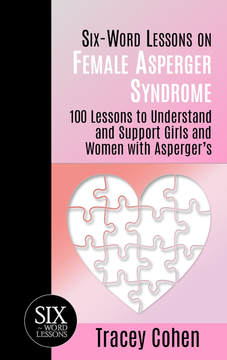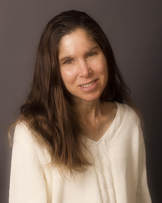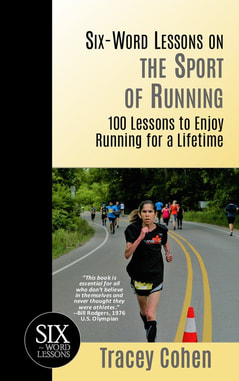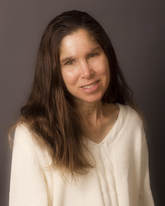 They told my mom she was overreacting and that I was a bad, spoiled kid even as an infant. Doctors, family and friends said my poor behavior was her fault. So we struggled. I fought to comprehend a world that was painfully loud, busy, bright and unpredictable; one that failed to follow through on even the simplest of promises, communicated in foreign customs with a frequency that my literal, logical aspie mind just could not understand. And despite my best attempts at reason and efforts to please everyone in my midst, I was nearly always deemed wrong, a brat, an annoyance and a dim-wit of sorts by family, peers, teachers and doctors. My family attempted to understand the rigid, withdrawn, seemingly aloof alien in their household who threw fits when schedules were altered, avoided physical affection and spoke in monotone cadence even as a toddler when speech first acquired. Despite a daunting two-year stay in an institution during my preteen years where my passion for running was born, high school graduation was achieved followed by a college degree, a career in education and service in our United States Peace Corps. After three decades I learned that such a thing as autism exists and nearly a decade later I received my unequivocal aspie diagnosis.Today, roughly eight years enlightened, I bear no bitterness and am truly grateful for the gifts I possess, experiences gained, knowledge acquired, achievements made. Nevertheless, the difficulties endured and scars that remain from so many misunderstandings and so much lack of insight, I would never wish upon any individual or their family unit. On March 17, 2015 I published my first book, Six-Word Lessons on Female Asperger Syndrome: 100 Lessons to Understand and Support Girls and Women with Asperger's. The book is short enough to read in a day, while full of valuable information for males and females, old and young, parents, professionals, families and anyone willing to learn, Aspies and neurotypicals alike. Thank you for reading my story and for supporting efforts to help bridge the gap between autism awareness and a better understanding of Autism Spectrum Disorder including signs and symptoms specific to the female expression.  Tracey Cohen, a lifelong competitive runner, freelance writer, and Returned Peace Corps Volunteer, was diagnosed with Asperger syndrome at the age of thirty-nine. Sharing her own struggles and discoveries, she aims to empower others to learn, accept and find peace in an ever complicated neurotypical world. She is the author or Six-Word Lessons on Female Asperger Syndrome and Six-Word Lessons on the Sport of Running.
0 Comments
 Originally published in Michigan Runner Magazine, July/August 2015. We met in 1983, Northville, an hour (pre-Interstate 696) by car, a lifetime for my preteen self, removed from the only home I'd ever known, in Oak Park, Michigan. Institutionalized at age 12 in a psychiatric unit for what proved a neurological disorder, I likely would have lost my marbles if not for the rare intuitive compassion of one staff person among the many providing 24/7 supervision under lock and key. Our rendezvous were brief and sporadic but how I cherished our time away from the noisy, chaotic, unfamiliar masses, a catastrophic environment for any person on the autistic spectrum. Simple and silent, one foot in front of the other, my newfound friend provided pure bliss no matter the burning in my lungs those very first outings. Eventually released, Asperger syndrome still undetected, my running passion accompanied me and has never left my side. Though it was nearly 20 years before I knew such a syndrome existed and even more before I was diagnosed, running became my "better half" and "in" to improved understanding and functioning in a social world requiring skills left out of my innate makeup. After cross country and track in high school, my running flourished during my collegiate years and beyond as I became a familiar-if-quirky face within the running and racing community. Though it would have been easier and more comfortable to keep my running private and solitary, my passion for it and desire to connect with family, friends and people from all walks of life continues to fuel my efforts no matter how often I fall. Like running endurance, my tolerance for social interaction has improved, though we all know despite our dedicated training, some days our legs are dead, wind is null and speed seems a thing of the past. My early years at the races could best be defined as parallel play. I ran hard and was grateful and challenged enough just to be in the presence of others, sometimes going as far as to exchange a friendly nod or spoken greeting. Exhaustion and fear of the unintentional snafu always follows, but slowly and surely I have been blessed with the kindness and friendship of many willing to overlook my blunders and accept my limitations even if perplexed and, much to my fear, hurt or offended, which is never my intention. Case in point: I will forever remember the lovely, loving presence and gestures of Dolores Hensley, super volunteer and fixture of our running community, lost in body but not spirit nearly four years ago. Big smiles and kisses were her standard for every runner to cross the line, though much to my dismay, inconsistent sensory issues and meager social capacity all too often produced an involuntary reaction that was ornery and stiff, no matter my desire. But Dolores never desisted; she accepted my explanations, willingly and graciously including me in her welcoming, loving gestures. While I am grateful for all my good fortune, I must wonder how different my journey might have been had information been available when I was just a young girl. It is for this reason I have written my first book, Six-Word Lessons on Female Asperger Syndrome. Concise and to the point, I endeavor to teach anyone willing to learn what it means to be born on the autistic spectrum, little-known differences between males and females, coping strategies and more. Knowledge is a powerful gift, and it is my intention to raise as much awareness as possible to help those on the spectrum gain essential resources and avoid some of the pitfalls of my past.  Tracey Cohen, a lifelong competitive runner, freelance writer, and Returned Peace Corps Volunteer, was diagnosed with Asperger syndrome at the age of thirty-nine. Sharing her own struggles and discoveries, she aims to empower others to learn, accept and find peace in an ever complicated neurotypical world. She is the author or Six-Word Lessons on Female Asperger Syndrome and Six-Word Lessons on the Sport of Running. |
See the Authors!
All
|

 RSS Feed
RSS Feed